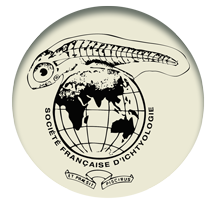The role of trypsin-like protease in sperm on fertilization in fish
Fertilization is an important process for the continuance of the species. In most of fish species, sperm fuses with an ovum through micropyle on the egg chorion because sperm does not have acrosome. In Japanese eel (Anguilla japonica), however, trypsin, a member of the serine protease family, is expressed in their testis by stimulation of 17α, 20ß-dihydroxy-4-pregnen-3-one (DHP), which induces the initiation of meiosis, spermiation and sperm maturation in spermatogenesis. In this study, we investigated whether the trypsin-like protease exists in sperm in eel and kelp bass (Epinephelus bruneus Bloch) and it acts on fertilization in fish using sperm and eggs of both fishes. Tryptic activity was detected in the solubilized sperm membrane protein in both fishes. Using sperm of both fishes, treated with serine protease inhibitors or anti-eel trypsin antibody, artificial fertilization was performed. As a result, treatment with serine protease inhibitors or anti-eel trypsin antibody significantly decreased the fertilization rates in both fishes. These results suggest that trypsin-like protease exists in sperm membrane and plays an important role in fertilization of fish whose sperm does not have acrosome.


